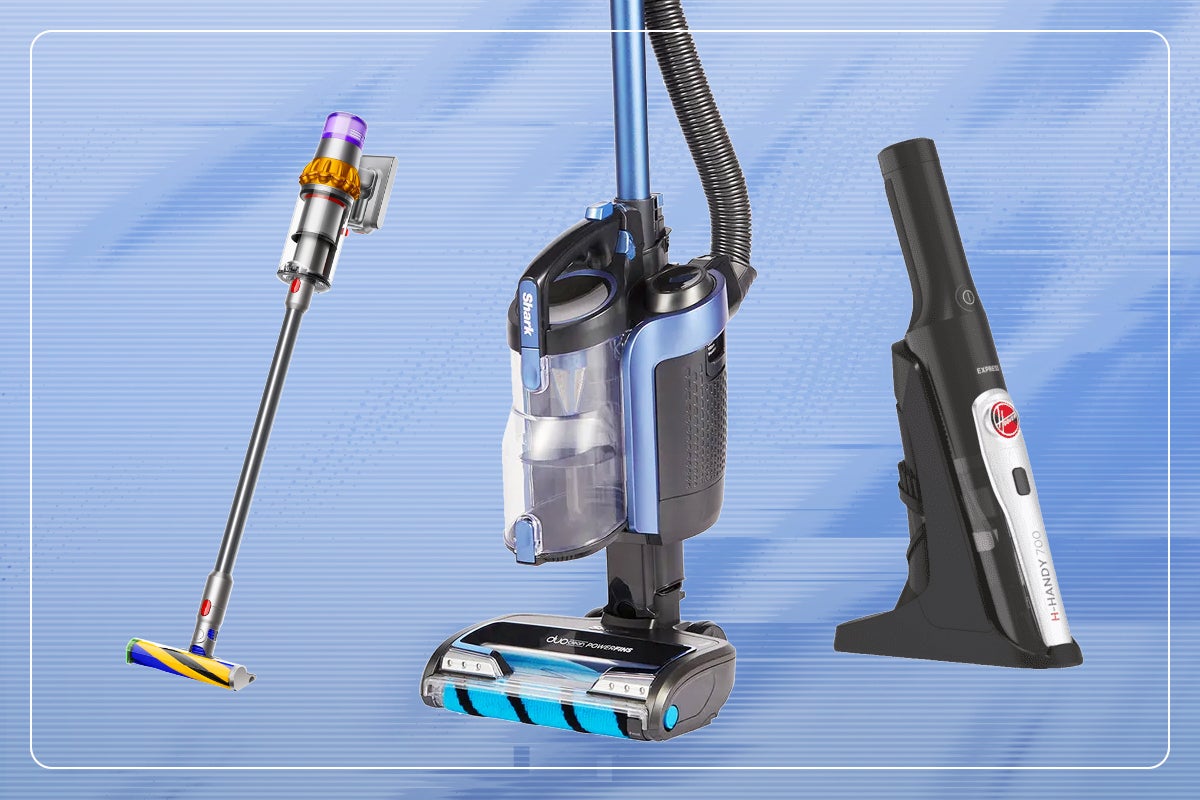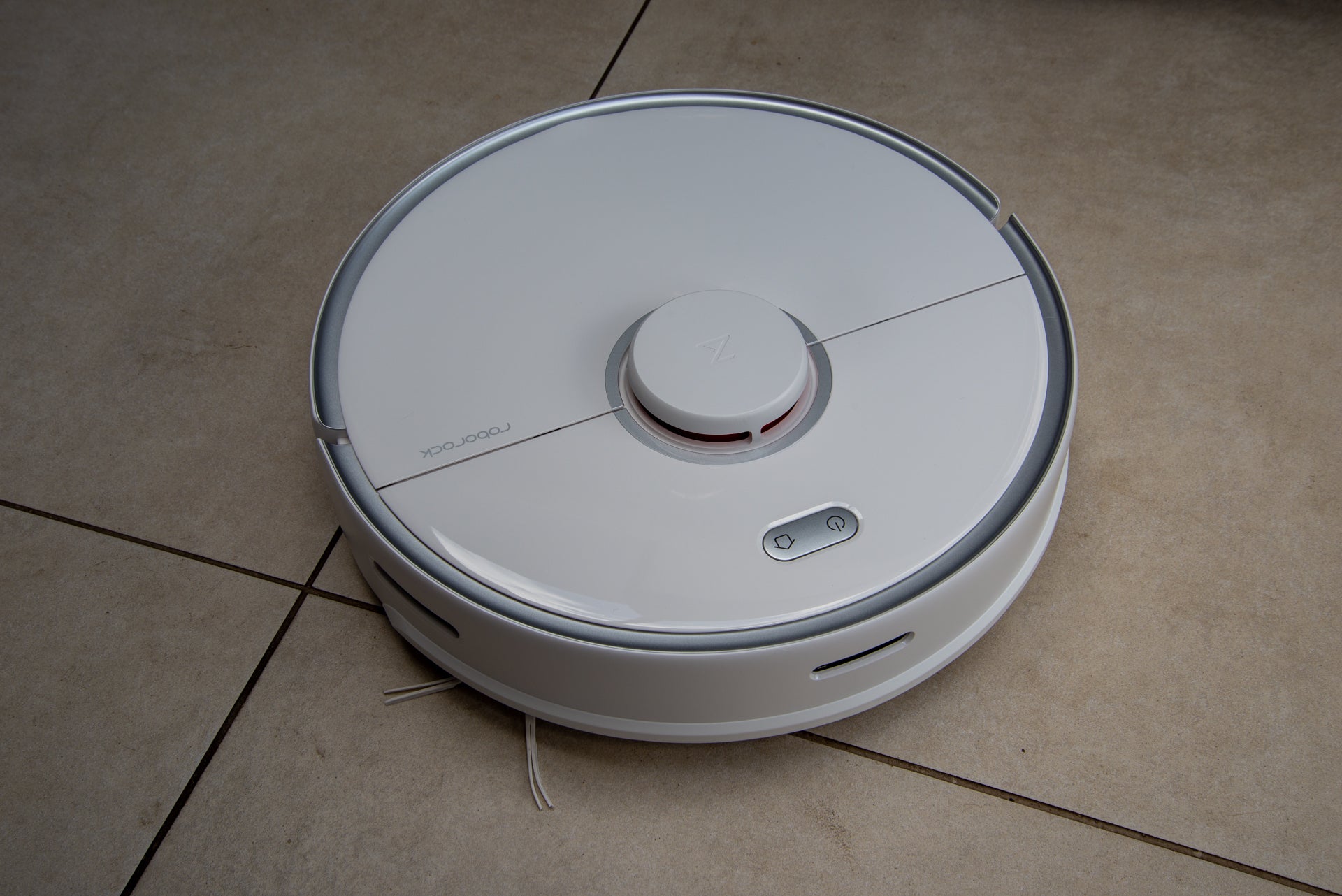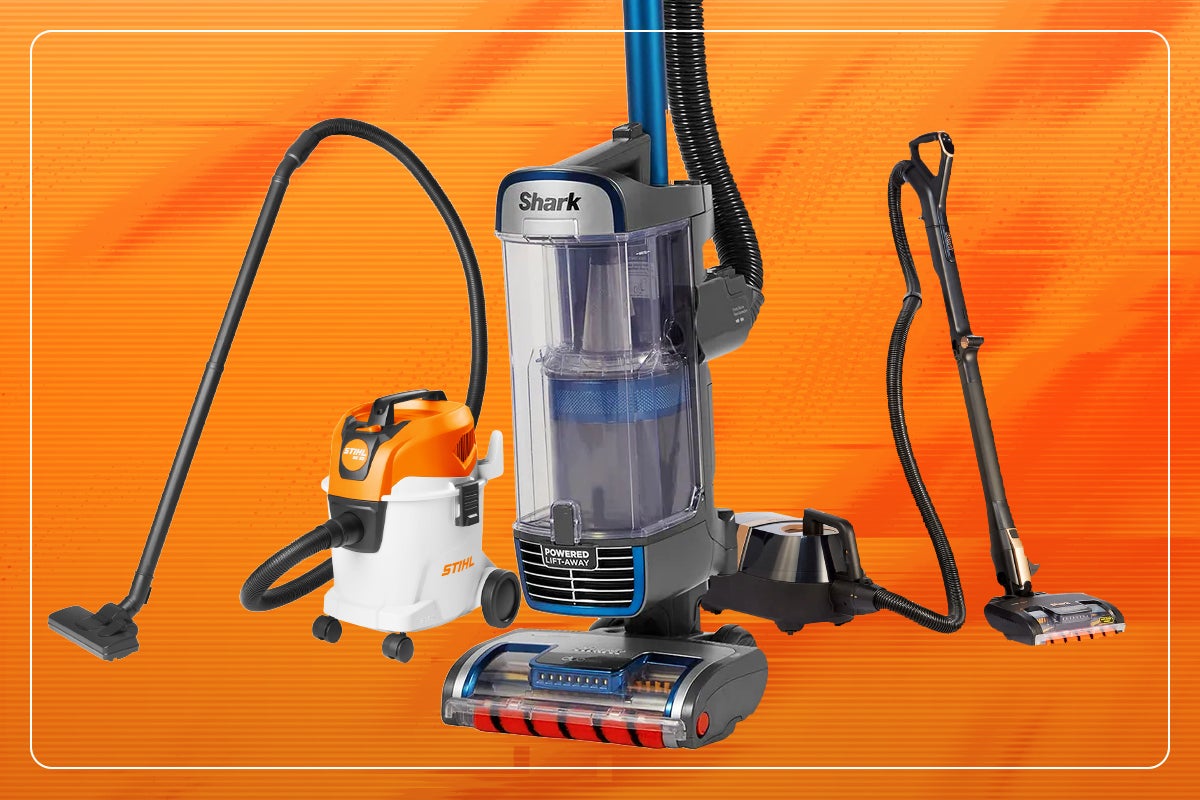Proscenic Floobot X1 Review
Lots of features but performance lets it down
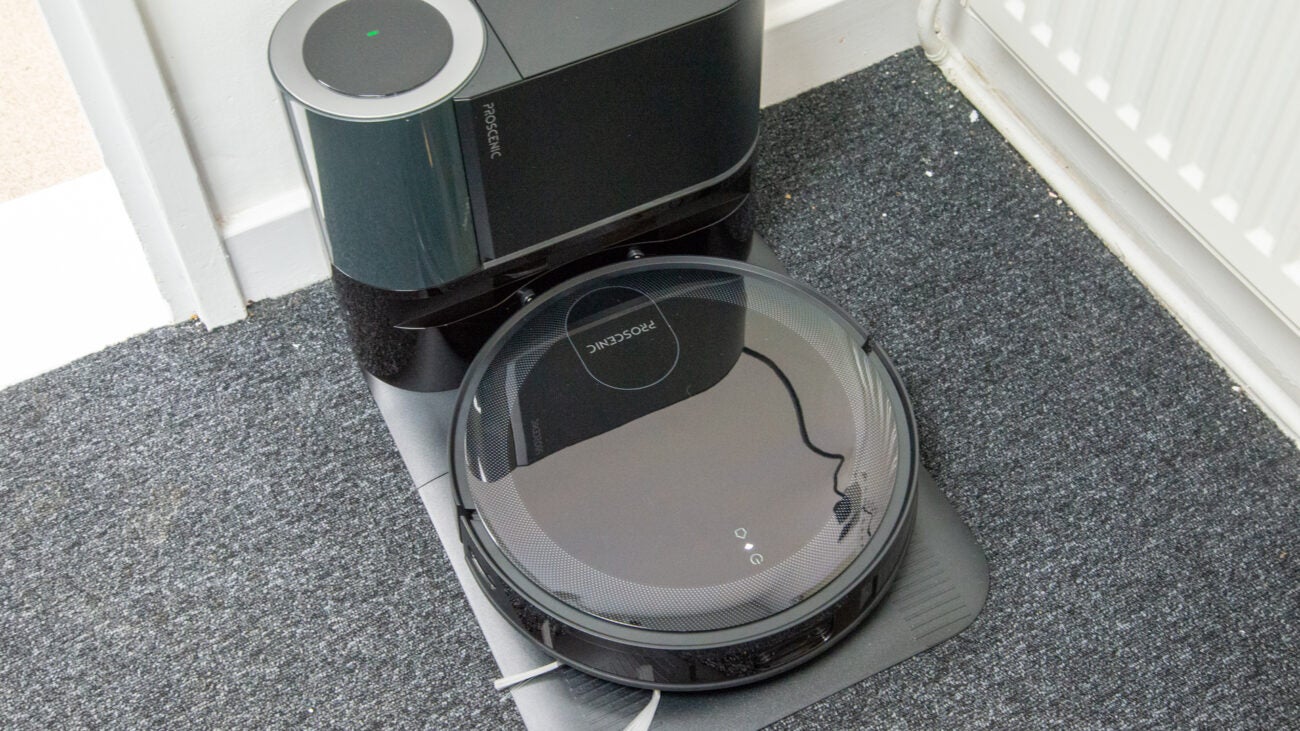
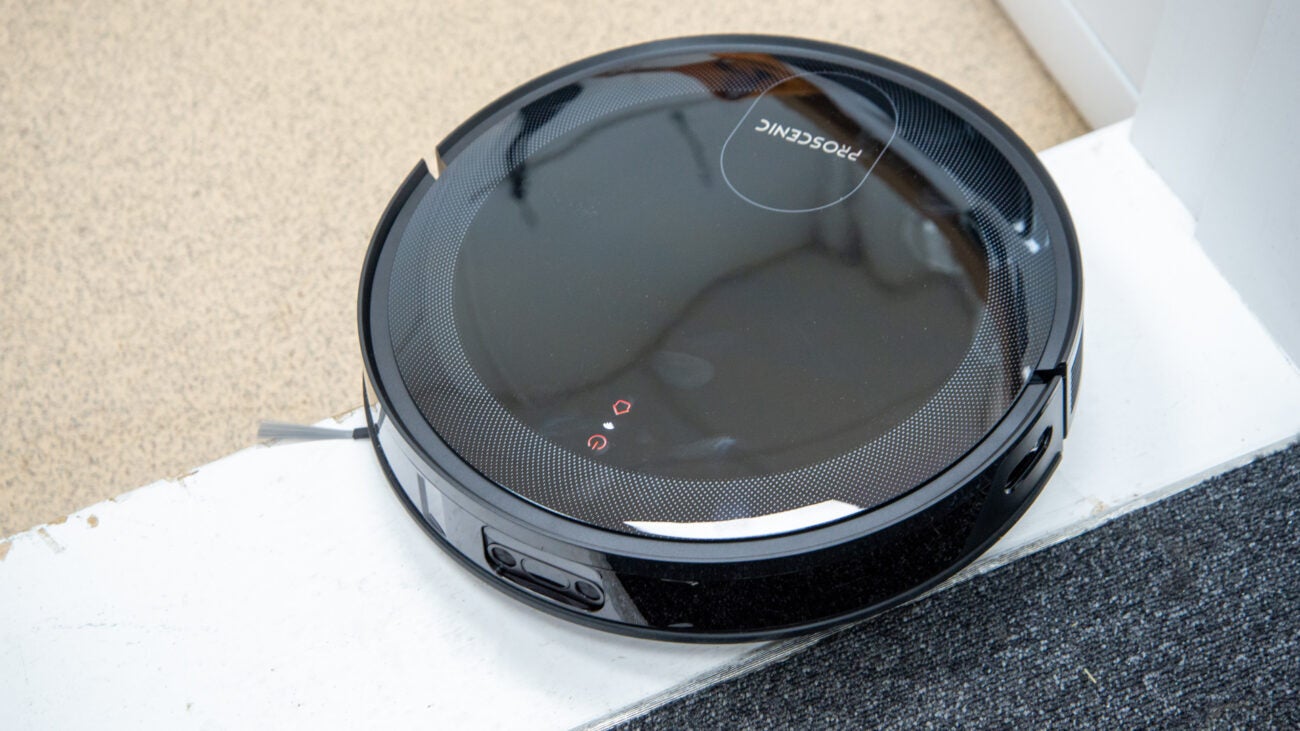
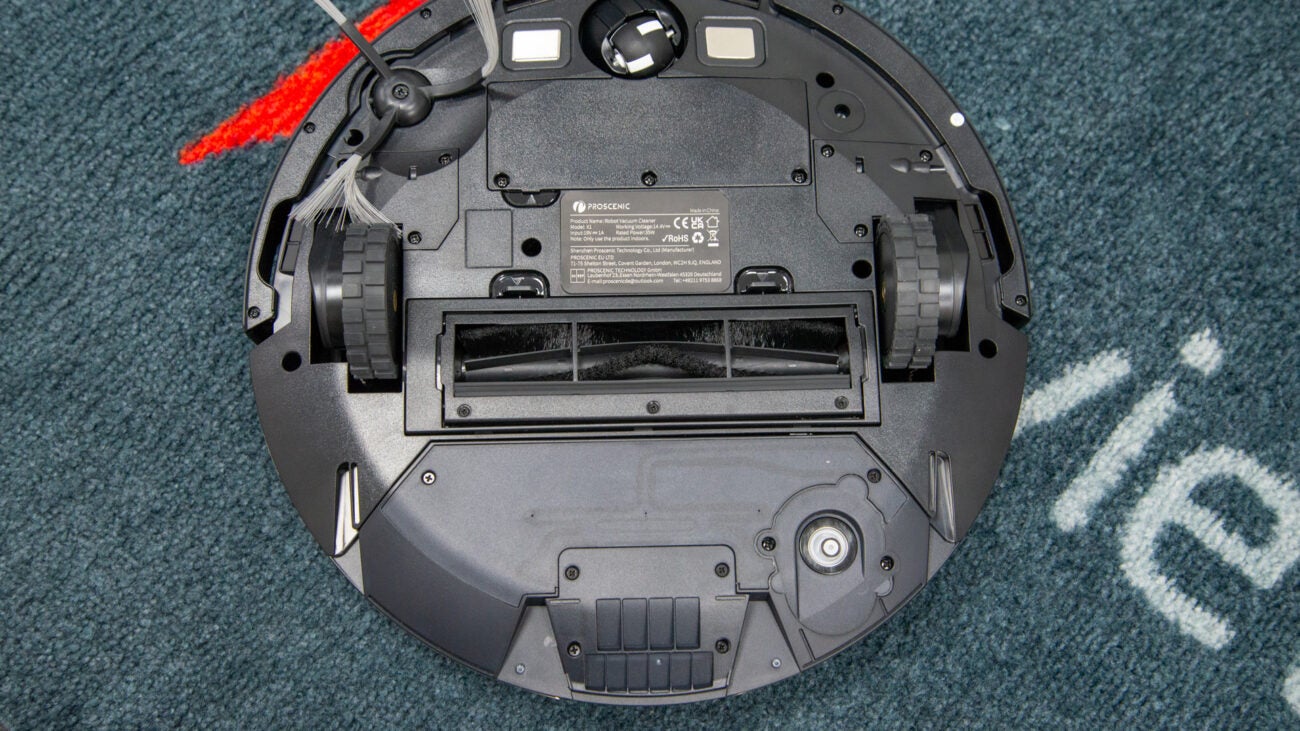
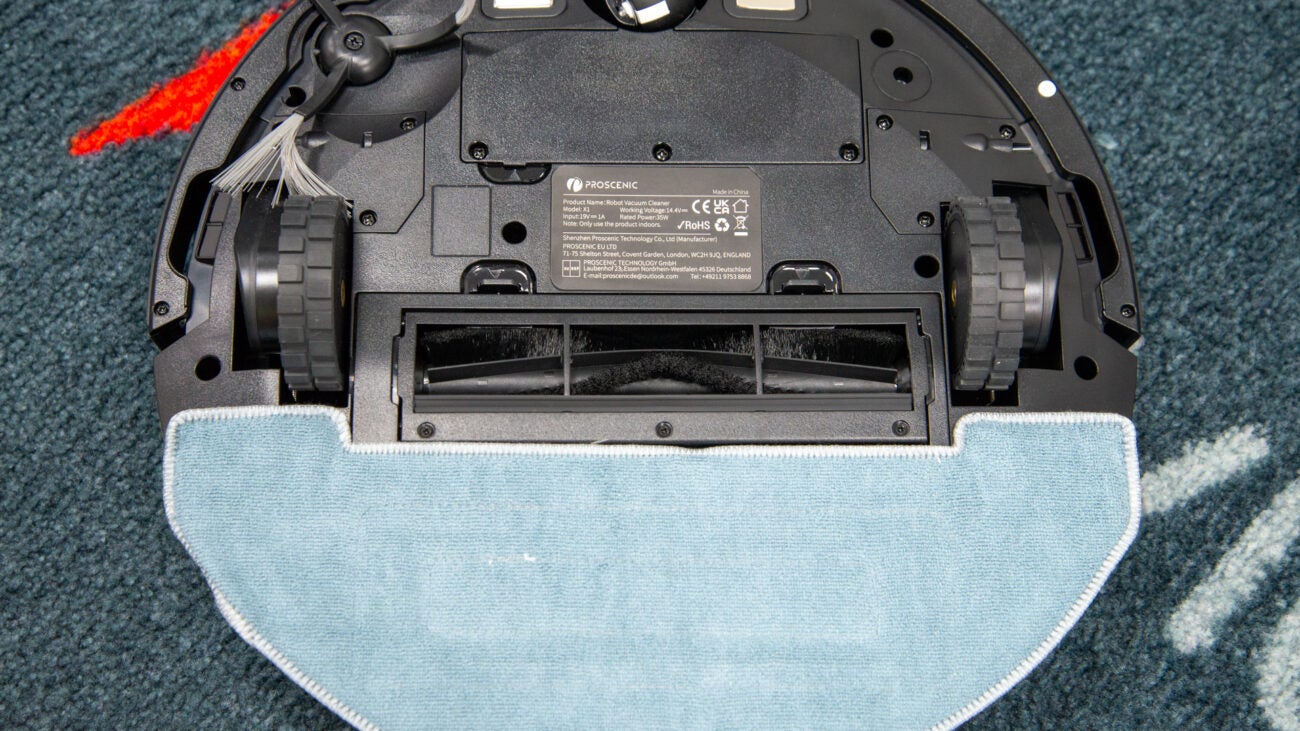
Verdict
Considering its low price, the Proscenic Floobot X1 robot vacuum cleaner has a lot of features, including laser navigation, a self-empty station, sonic mopping and app control. I found that cleaning and mopping performance wasn’t quite as good as I’d hoped for, as navigation let the side down and the app was a bit clunky to use.
Pros
- Good price
- Laser navigation
- Self-empty station
Cons
- Clunky app
- Basic navigation
Key Features
- TypeThis is a robot vacuum cleaner and mop.
- MoppingUses a sonic mop for scrubbing.
Introduction
Costing less than £400/$400, the Proscenic Floobot X1 is packed full of features, including laser navigation, a sonic mop and a self-emptying station.
That seems almost too good to be true, and the slightly clunky app and below par navigation do slightly let the side down.
Design and features
- Clunky app
- Self-empty station
The Proscenic Floobot X1 ships with an impressive amount of kit, including a self-empty station. It’s a little fiddly to set up as the plastic base, which protects the floor from getting wet after mopping, has to be clipped together; then, the charging dock sits on top, but isn’t screwed into place.
While the dock is heavy enough to remain stable on the base, if you ever need to move it to clean behind, it’s all a bit fiddly to move and reassemble.
Inside the self-empty dock is a 2.5-litre self-sealing bag, which holds enough dust to last around 30 days. With replacement bags costing around £19.99 for a pack of six, they’re pretty good value and in-line with what the competition charges.
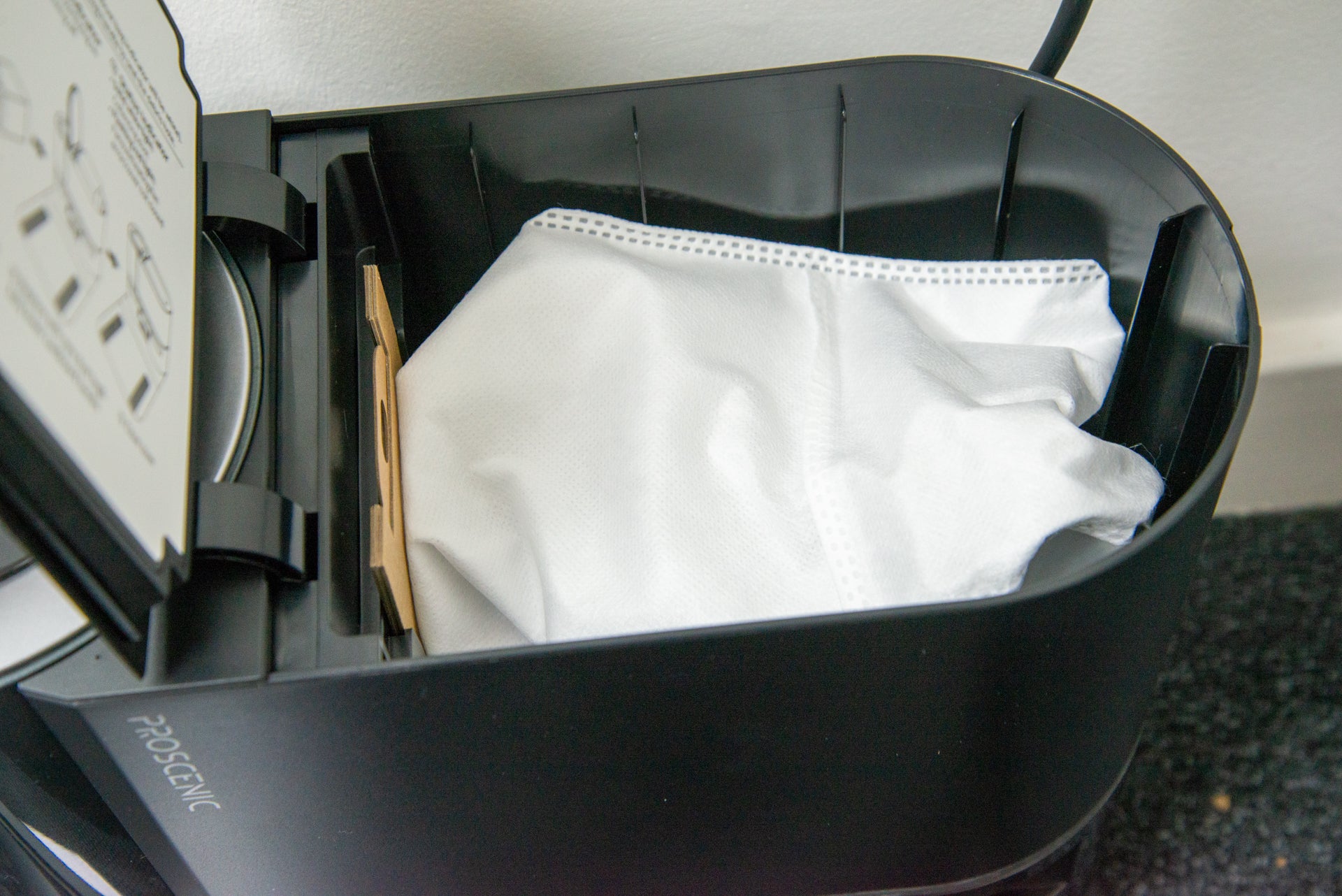
Externally, the Proscenic Floobot X1 looks much like any other robot vacuum cleaner thanks to its round body. Here, there’s no LiDAR dome on top, as you get with the TP-Link Tapo RV30, as the Proscenic Floobot X1 doesn’t use LiDAR.
Instead, it has laser-assisted navigation via the sensors on its front. It does mean that the robot has to turn around to map out a room, although lasers at least mean it’s fast for the X1 to complete the map.
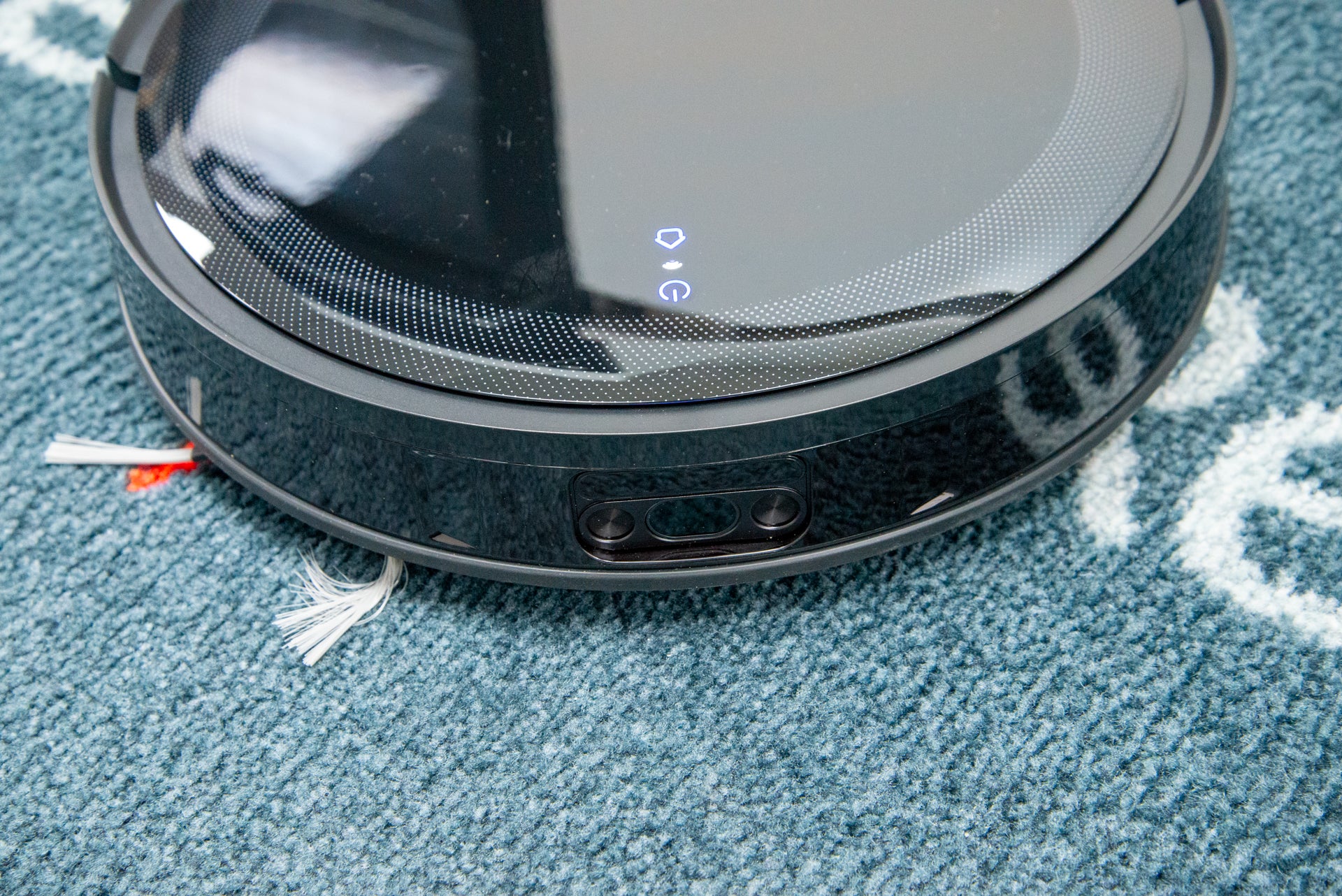
Underneath, there’s a single side-sweeper brush, which means that the X1 has to align itself correctly with the edges of a room to sweep dust out from the sides.
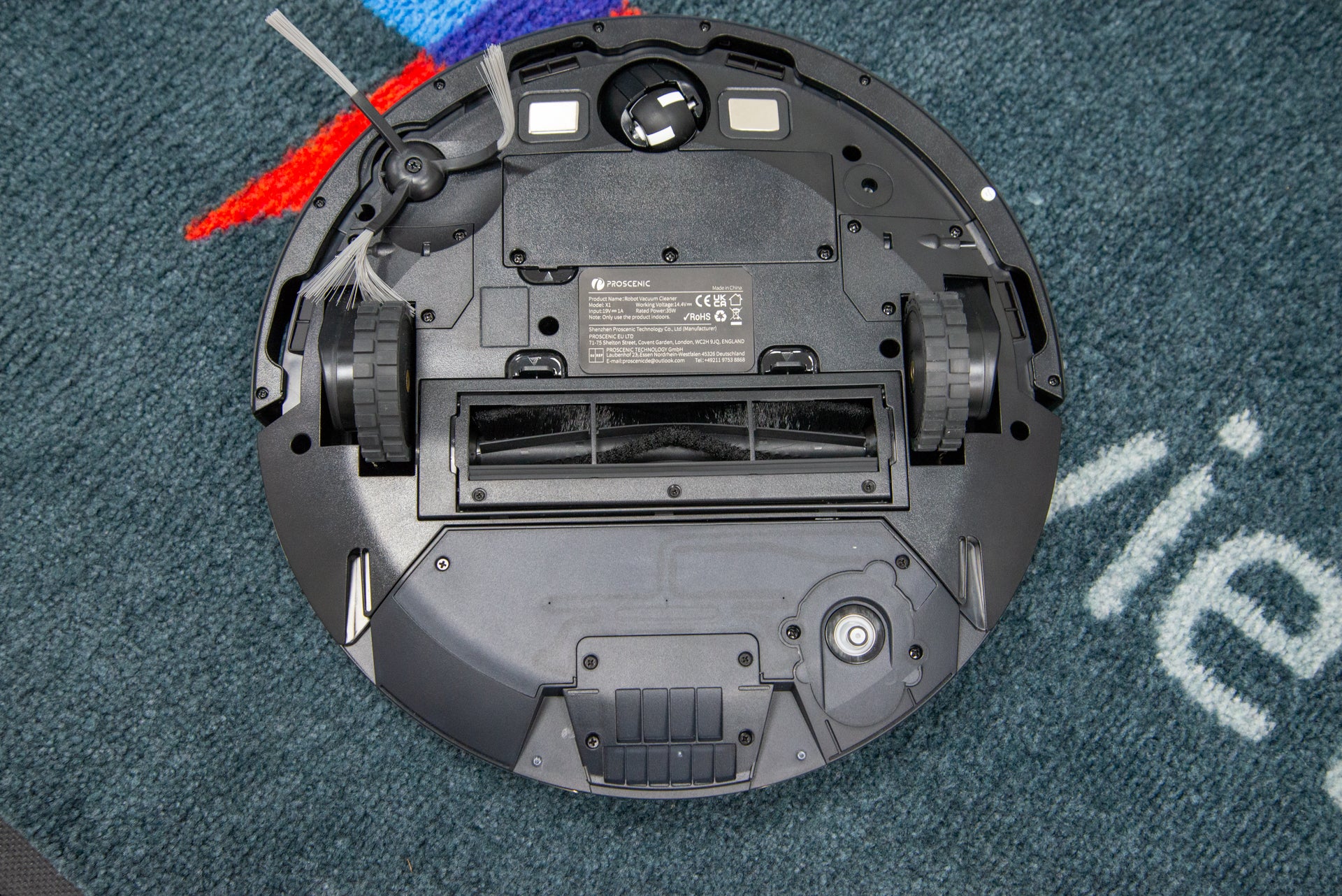
There’s also a standard floor brush with stiff bristles. This brush is not an anti-tangle version, so hair will need to be cut away. If you can’t stand this job, you’ll need a cleaner with an anti-tangle design, such as the iRobot Roomba J7+.
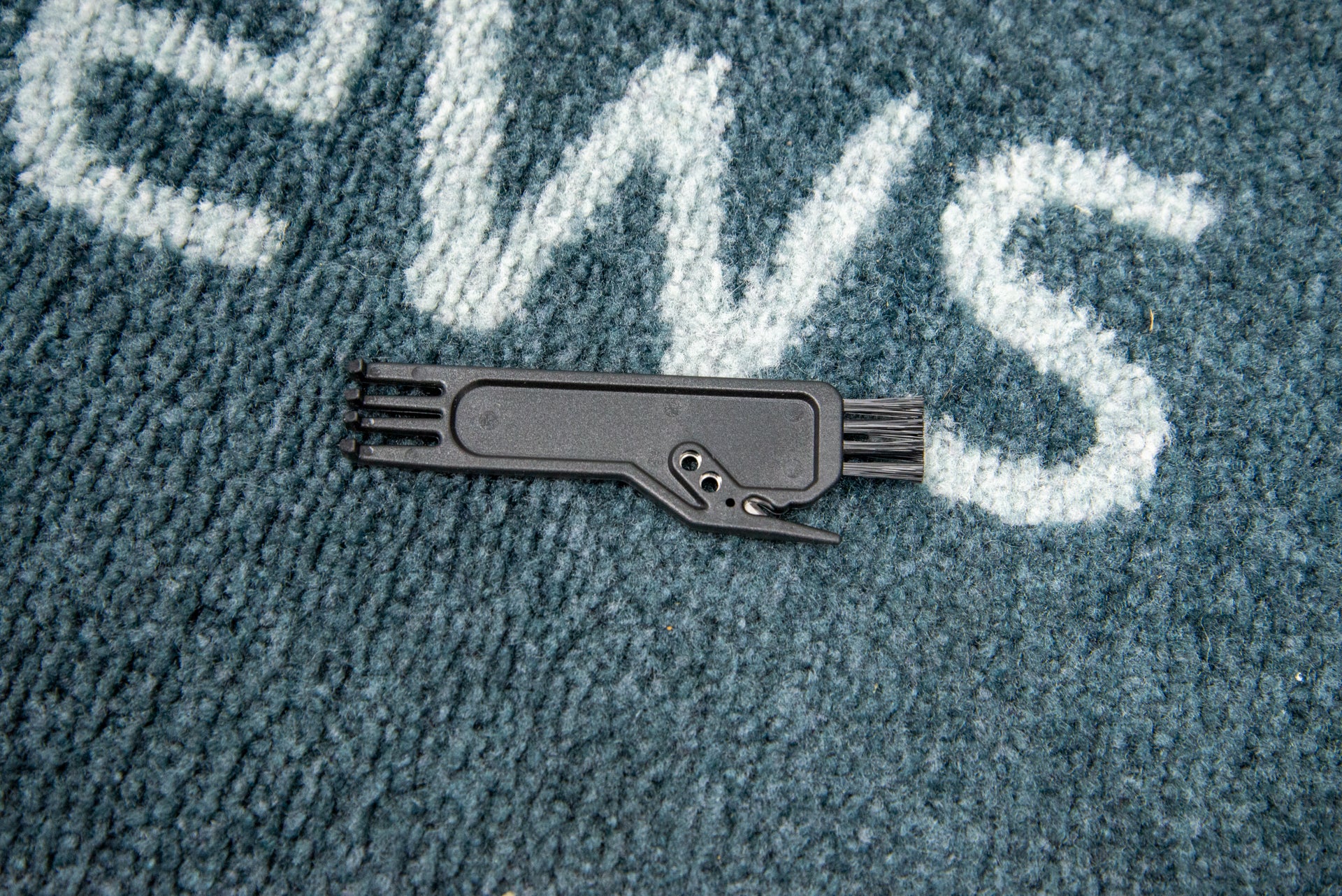
There’s a mopping bracket in the box, which clips into place underneath. This is a sonic mopping bracket, similar to the one used on the Roborock S8 Pro Ultra. Using similar technology to an electric toothbrush, the cloth is vibrated to agitate and remove dirt.
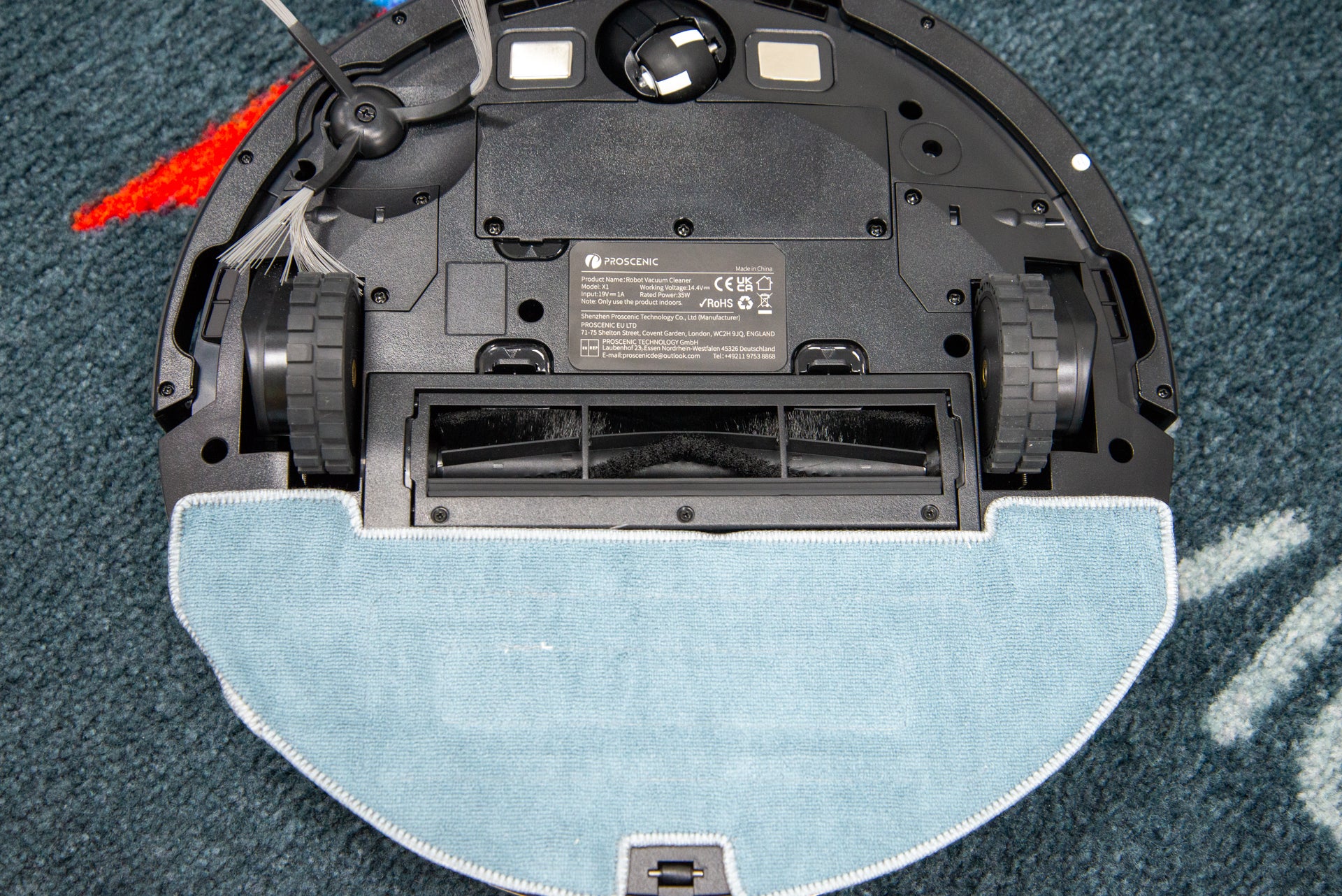
Water is fed by a 250ml water tank, which sits around the 240ml dustbin. While you won’t have to worry about emptying the bin, it is worth cleaning out the filter every month.
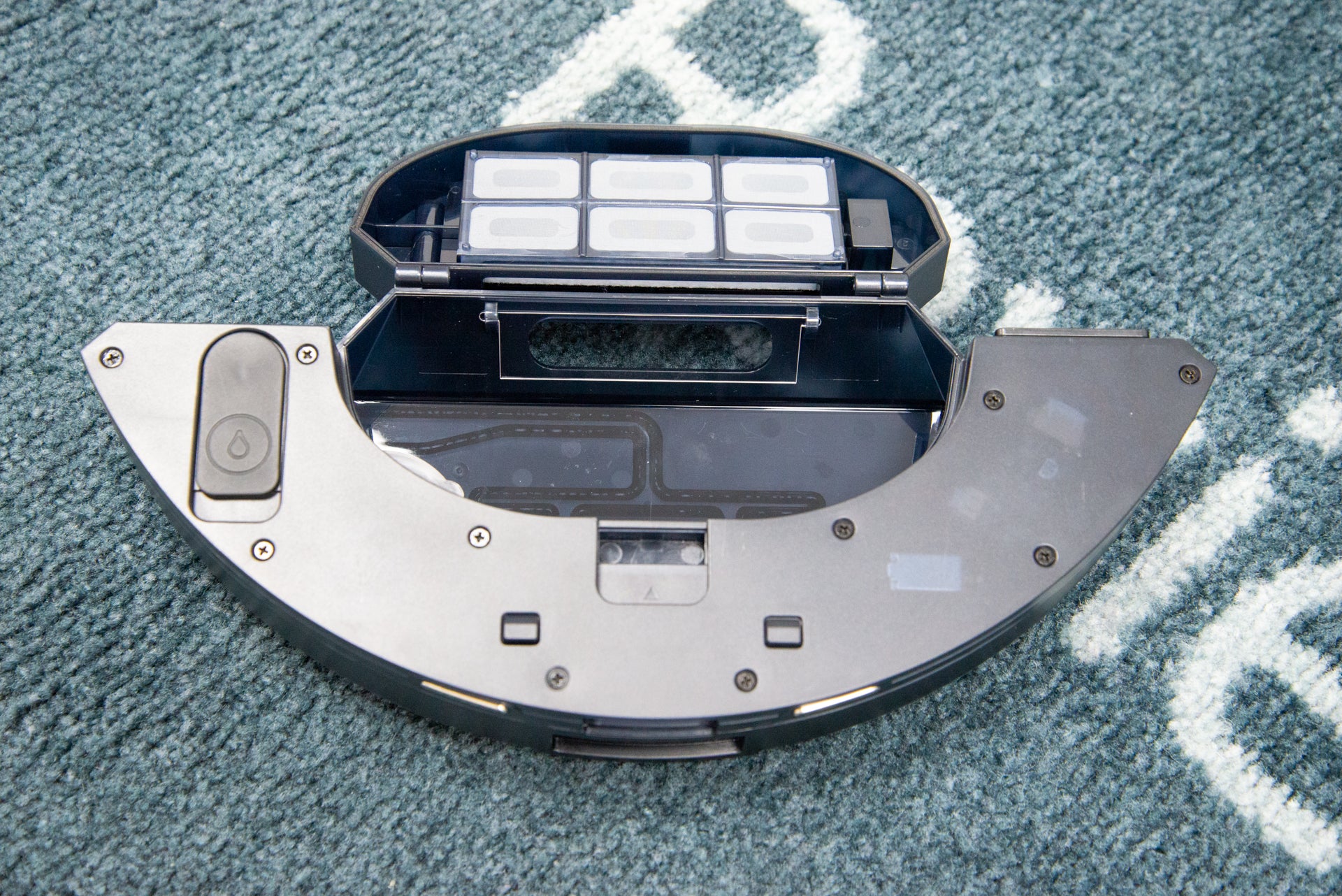
Proscenic provides a physical remote control in the box, which can be used to start and stop a clean, send the robot back to its dock and even to adjust suction power. Given the app’s state, the latter feature may be useful.
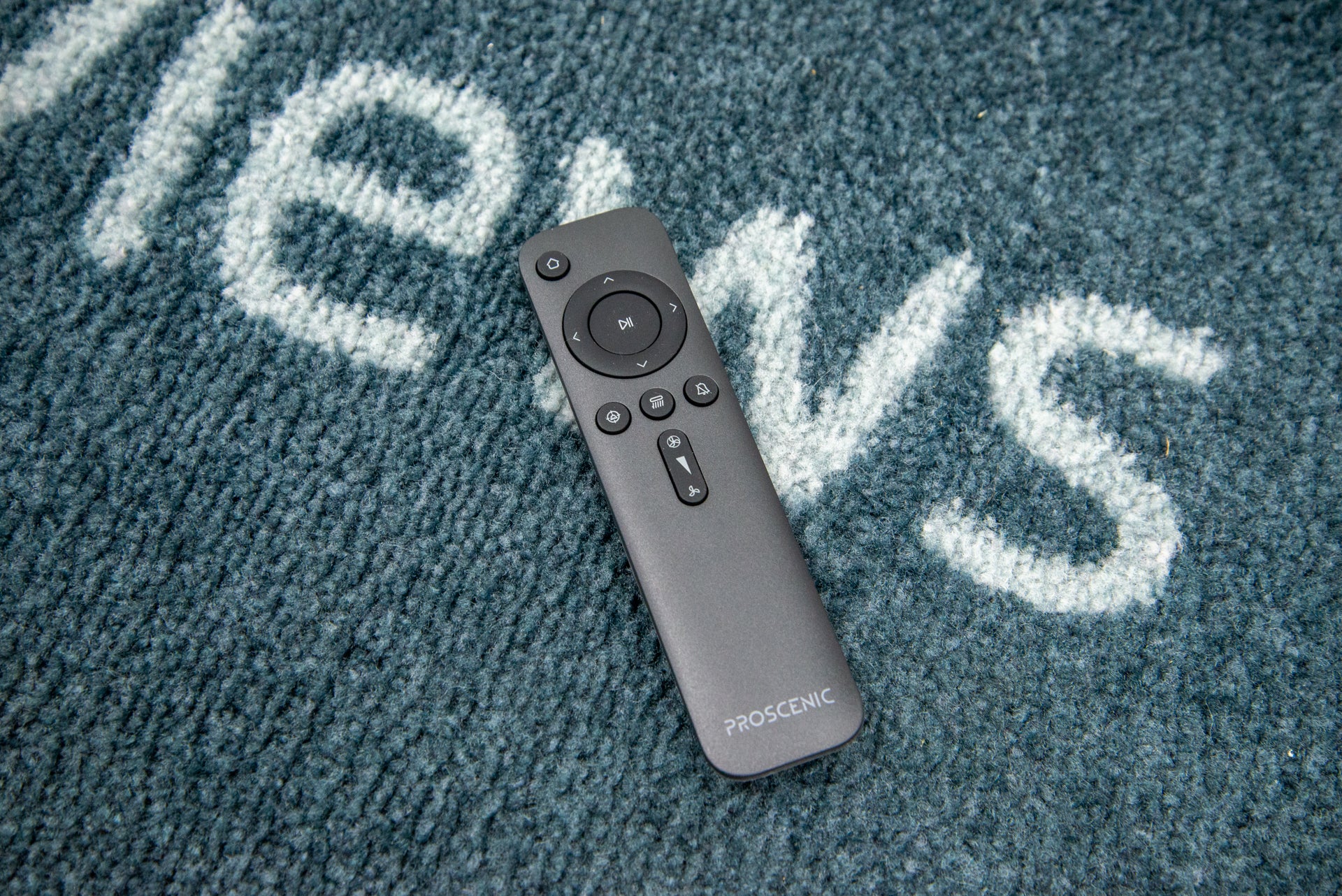
Using the Proscenic app, the X1 can be connected to your Wi-Fi network for remote control and for Amazon Alexa and Google Assistant voice control. Using the app is a good idea, as it can store multiple maps, letting you select between different floors in your home.
I did find the app a bit clunky to use. It starts off well, creating a map and then guessing where rooms are; I could merge and split incorrect rooms. And, each map can have areas added to it, for quick cleaning. For example, I could add a box around the dining table.
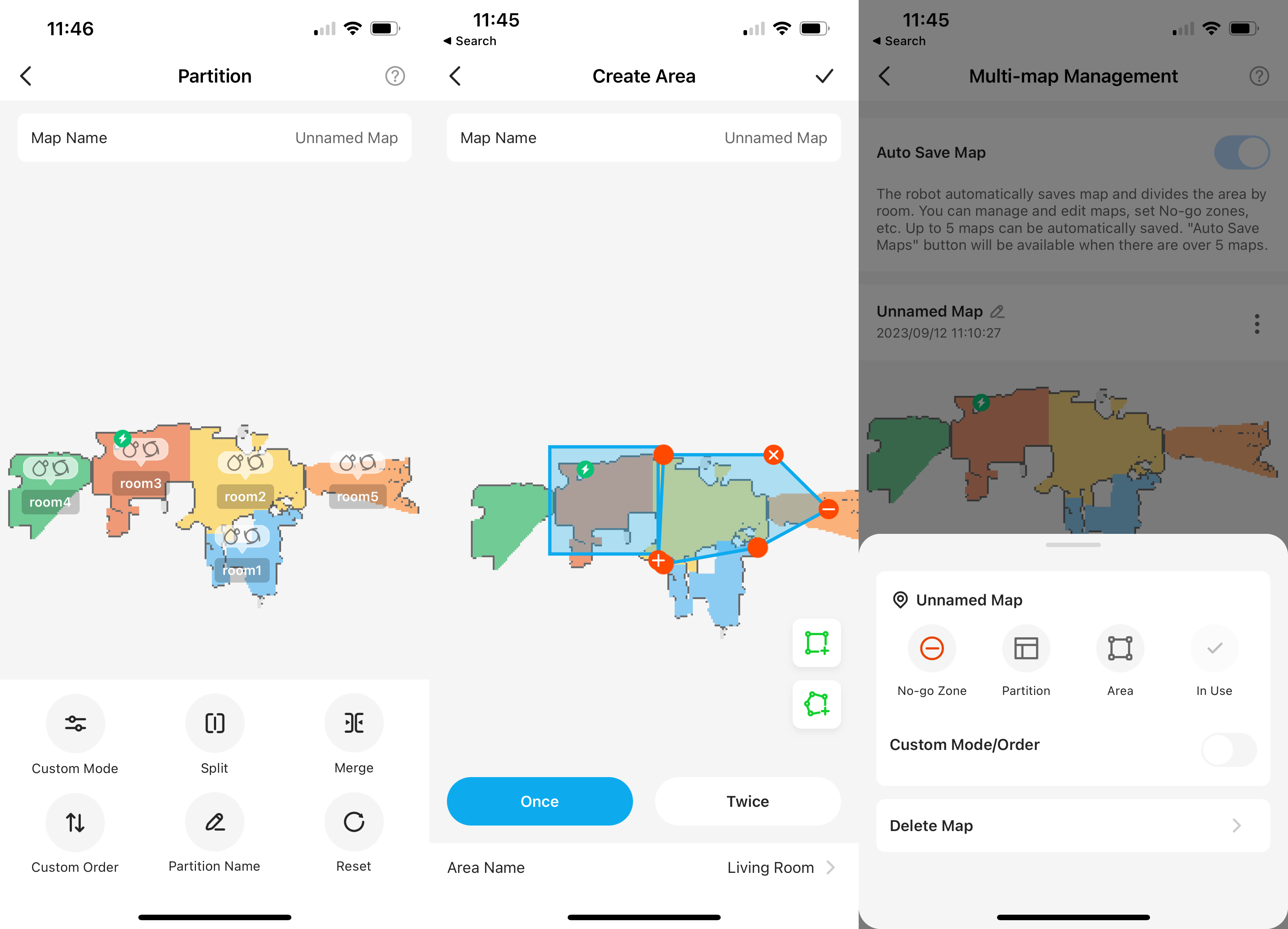
That’s the good part; the downside is that the app is very fiddly to use. I hunted around to find the robot’s power settings, but I couldn’t. In Auto mode, the Proscenic Floobot X1 will just run at its default power mode, upping suction power when its optical sensor detects that the robot is on carpet.
The same sensor will cause the robot to back-off and avoid carpets while the mop bracket is attached. As there’s no mop lift function, the Proscenic Floobot X1 can’t move over carpet when the mop bracket is attached, so place its docking station carefully.
To adjust mopping and power settings, I had to set an option on a per-room basis. That’s fiddly to do and not very flexible; you can see why the remote control may be handy.
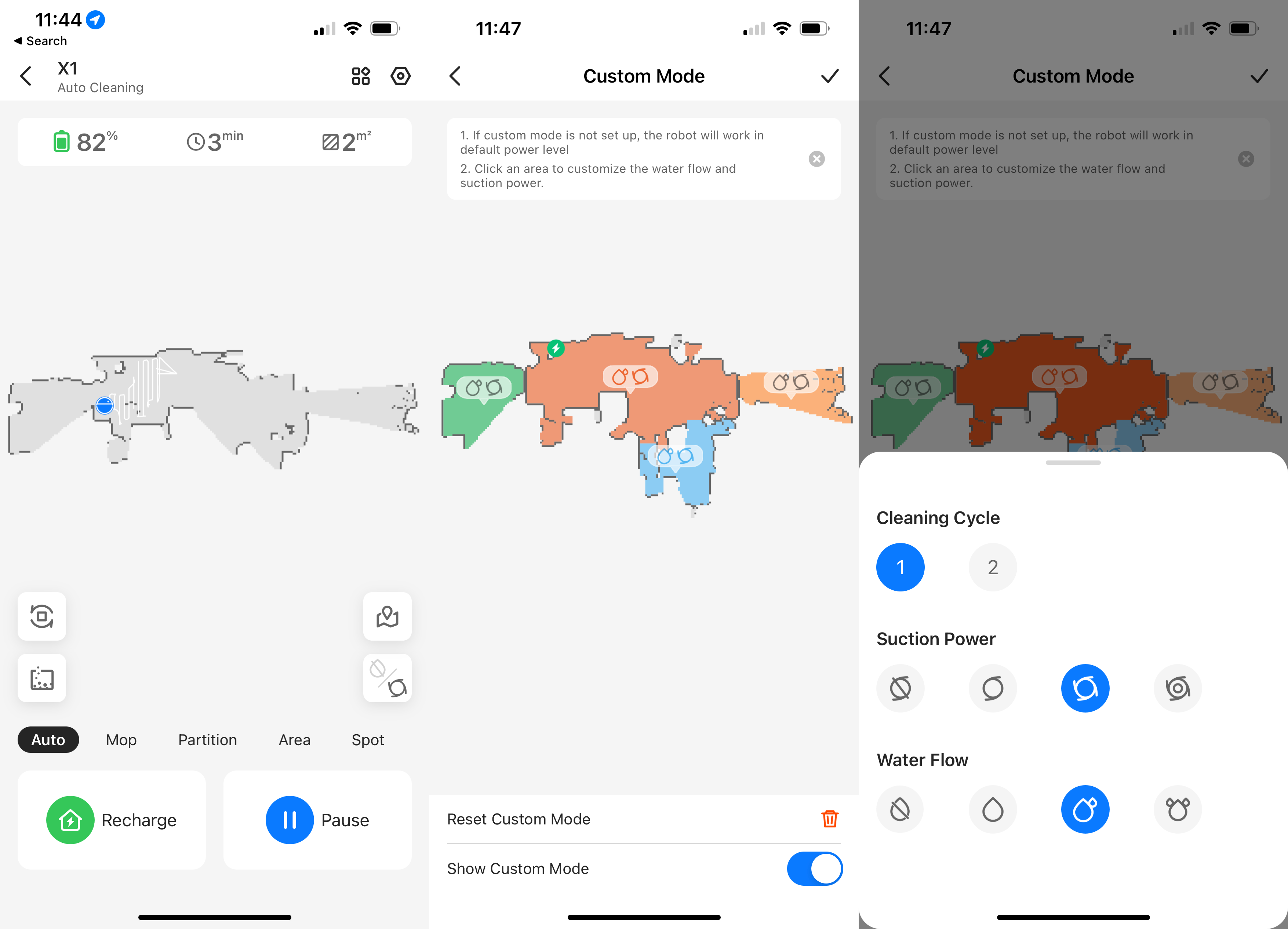
For each room, I could set the suction power (four levels, including off) and the water flow (four levels, including off). This allows for vacuum-only modes and for mopping-only. As well as setting the cleaning power by room, it’s possible to set how many passes the robot should make: one or two.
Performance
- Not the most able navigator
- Needs two passes for deep stains
- Average mopping performance
I put the Proscenic Floobot X1 through the paces in our home appliance test lab. I found that it wasn’t the best navigator, and would sometimes struggle, getting stuck around the lab and calling out for help.
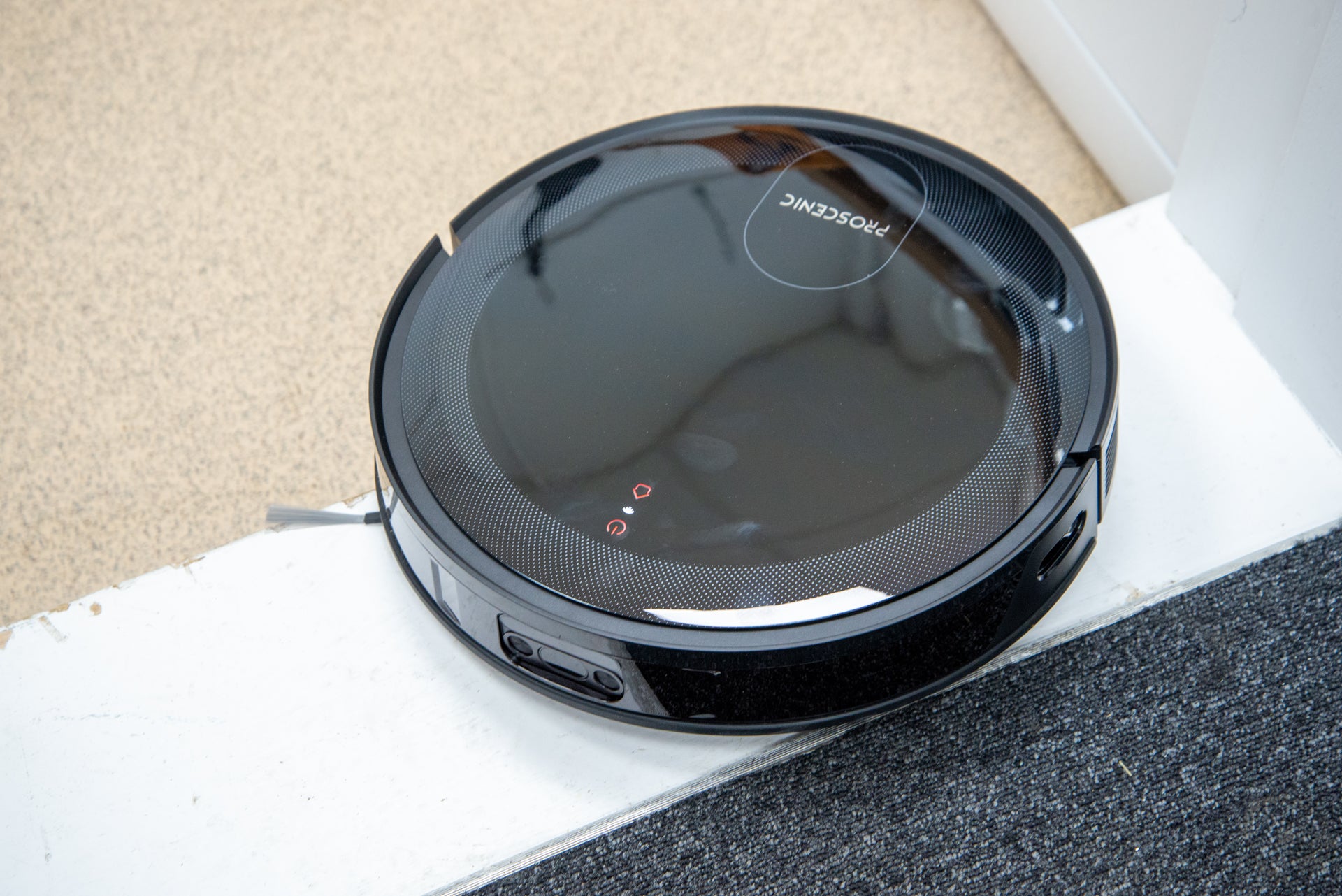
There’s a small step from the main room down into the kitchen, and this caused problems for the X1. On multiple occasions, the X1 got stuck on the step, with a wheel hanging over the side; on one occasion, it just fell off the step into the kitchen, so I had to shut the door for future cleans.
I tested its vacuuming ability with a few tests. First, I sprinkled a teaspoon of flour onto the carpet and allowed the Proscenic Floobot X1 to move around cleaning. Set to one pass, the pick-up was poor, with a lot of mess left behind.


Running the robot for a second time, I found that it did a better job, although there was still a fair amount of mess left behind.

I moved to my hard floor, and found similar issues here. With a single pass, there was still a chunk of dirt left behind from my middle-of-the-floor flour spillage. Again, a second pass was required.

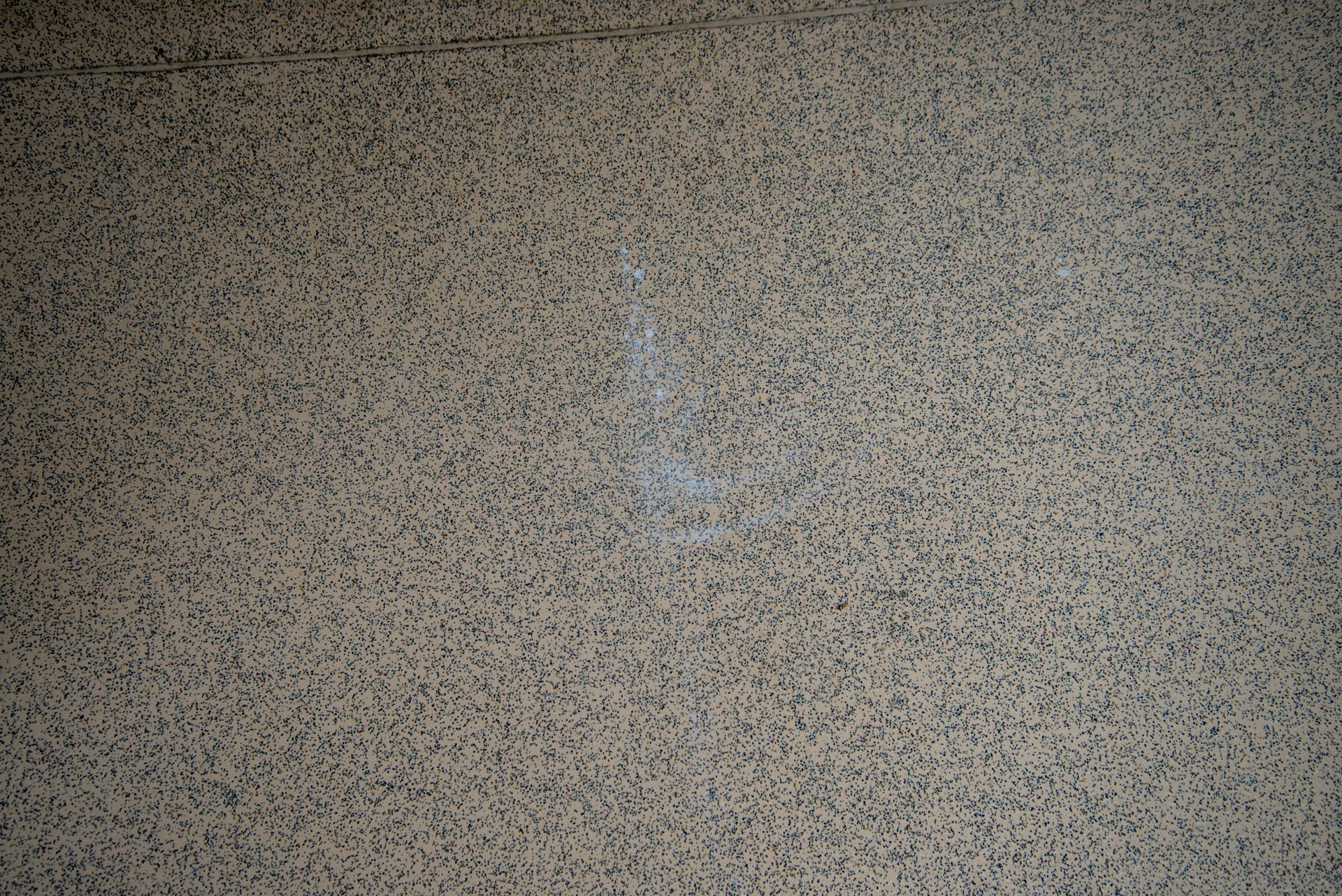
With flour sprinkled against the kitchen plinth, the Proscenic Floobot X1 struggled to pick up the mess, leaving a lot of it behind.
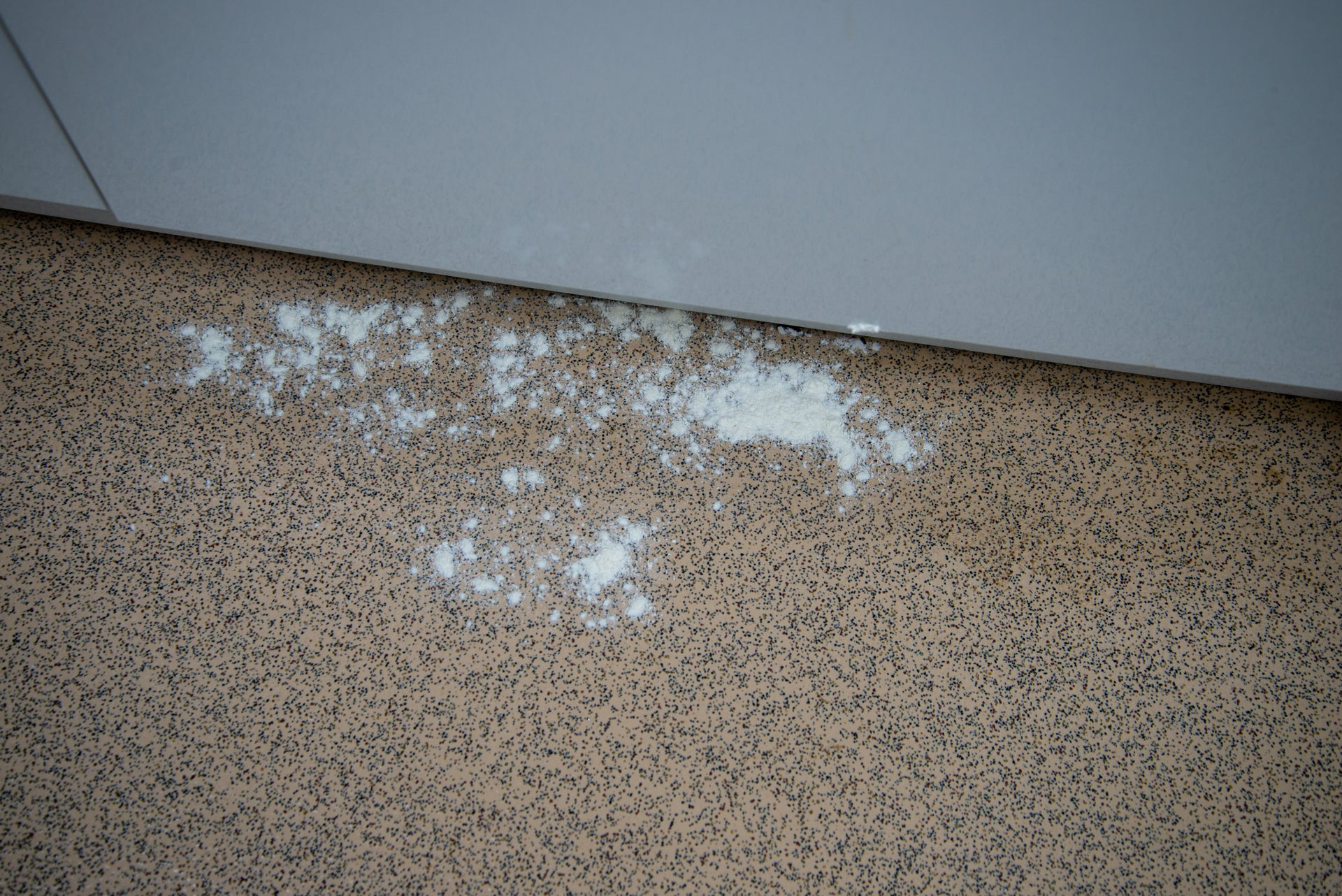
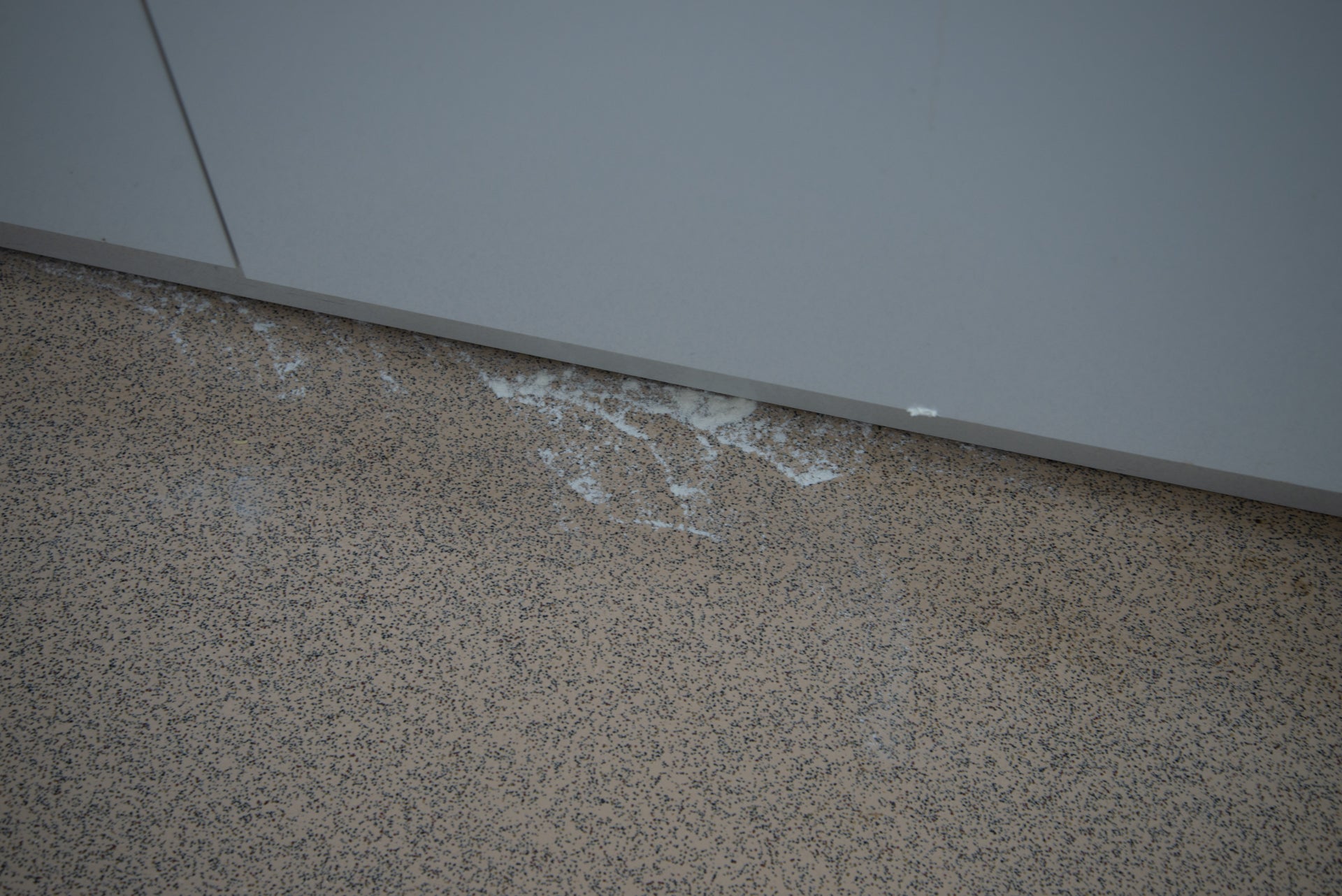
Mopping was also so-so. Although the sonic mop should mean that the X1 can scrub deeper stains, it struggled to remove tougher marks on the floor, but did do well with lighter, fresh stains. Overall, I didn’t think that the sonic mopping here was much better than from static mops used on other robot vacuum cleaners.
I measured the Proscenic Floobot X1 at a reasonable 66.7dB, which is loud enough to hear, but not too distracting.
Battery life is also good enough for the task at hand, with the Proscenic Floobot X1 cleaning the entire lab on a single charge.
Latest deals
Should you buy it?
You want a robot with a remote control
If you want to skip apps and voice control, then the bundled remote control can make this robot simple to use.
You want better cleaning performance and more features
Similarly-priced rivals cleaned and mopped better in my tests, and there are robots with far better apps.
Final Thoughts
There’s no denying the value of the Proscenic Floobot X1, particularly as it includes sonic mopping and a self-empty station. However, navigation and general performance were only average, and I’d rather spend a bit more on the TP-Link Tap RV30 or an alternative model in my guide to the best robot vacuum cleaners.
How we test
Unlike other sites, we test every robot vacuum cleaner we review thoroughly over an extended period of time. We use industry standard tests to compare features properly. We’ll always tell you what we find. We never, ever, accept money to review a product.
Find out more about how we test in our ethics policy.
Used as our main robot vacuum cleaner for the review period
We test for at least a week
Tested with real-world dirt in real-world situations for fair comparisons with other vacuum cleaners
FAQs
This vibrates at high speed to scrub away at the floor and remove stubborn stains.
When the robot docks, dust is sucked into a 2.5-litre bag for easy disposal.

